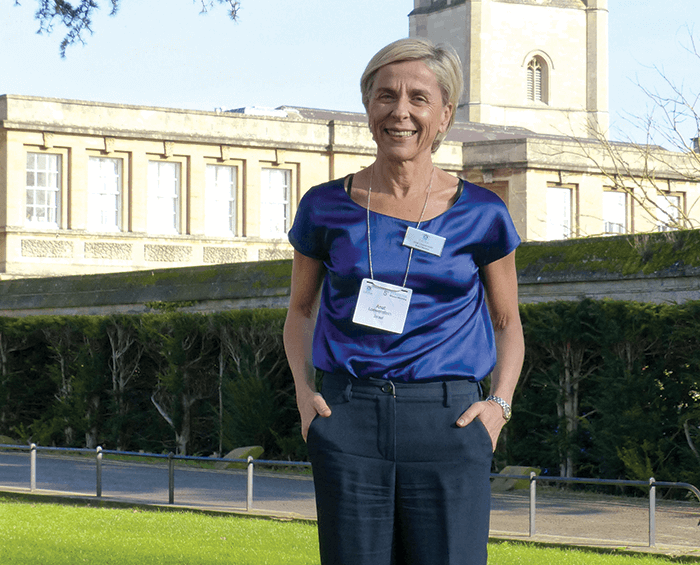
My parents were physicians, as was my grandfather, so medicine was a natural choice for me. I knew that I wanted to do something that would allow me to achieve career excellence, climb the ladder, and help people at the same time. But as an intern rotating through different departments, I realized that in many areas of medicine, you basically have a lot of debates, but have little power to actually help the patient in a timely manner. Ophthalmology offers the possibility of helping patients achieve better vision, relatively quickly – and that’s even truer today than it was when I started out.
I pursued an academic career and simply worked my way up – from lecturer, to associate professor, to full professor, then becoming incumbent of a chair, and from there to the vice dean. What drove me was a passion for educating students, so I could pass on to them the knowledge and skills they need. This is what brought me to the university, and it’s what keeps me there.
I learned my management style as a vitreoretinal fellow at the Wilmer Eye Institute at Johns Hopkins in Baltimore. As opposed to how my own country did things at the time, in the US it was all about sharing responsibility. Instead of having a chair who dictates how things are done, people were given responsibility over different areas. In my institute I have a person in charge of the outpatient clinic, another in charge of the OR, another in charge of the inpatient clinic and so on – and these people are experts in that particular area. This allows me to oversee all of the units, and perform quality control.
It started with a girl who came to our hospital after being injected with a long-acting steroid. The drug got into one of her eyes and she lost vision, even though the morphological trauma was not very severe. We realized that the drug was toxic, and from there we conducted research on this particular drug, demonstrating that the vehicle of the drug was extremely toxic.
Later, I was fortunate enough to play a part in the advent of anti-VEGF agents – bevacizumab was originally used without toxicity studies, so I volunteered to conduct one. Within a month I already had results that showed the drug wasn’t toxic to the retina, and I think my work helped to influence the face of modern retinal therapy.
I’ve been very fortunate because I would tell myself to take the same path that I did. I think it’s really important to concentrate on one field and try to be as good as you can in that field, this way you can become a leader with a lot of knowledge. What I would tell myself is that we always need to put patients first, and remember that we are here to treat them, to improve their vision and quality of life.
I think being a woman who has a family is a little bit challenging in ophthalmology, especially if you want to advance to the senior positions. I think that women are of course, just as capable as men, but they have a challenge as society sometimes expects them to focus solely on home and childcare. And I think this needs to change. Until it changes, the people in senior positions need to give women opportunities, perhaps with more flexible hours or in different areas, to allow them to show that they have comparable skills to men. Not to do less work, just perhaps to do it at different times of the day.
Well, I think my practice will still be crowded, because we will have more and more diseases that we are able to treat! But hopefully patients will be able to visit us less often, as the development of longer acting-drugs, slow release devices and topical therapies reduce the need for frequent appointments. I think vitrectomy will become faster and more accurate, too, as technology continues to develop.
I enjoy the diversity. My week is divided between surgery, research, university work and administrative tasks. I travel to interesting meetings, where I meet new people to brainstorm and share ideas – and these are people who are very senior and knowledgeable, so I can learn a lot from them. I sit on advisory boards, and I also get to take part in developing new technologies. I have the best job in the world!
